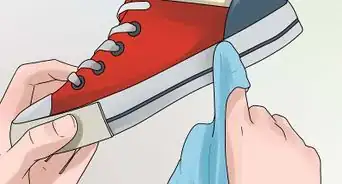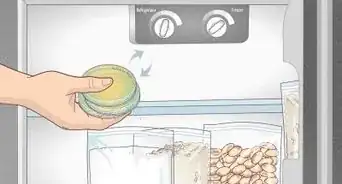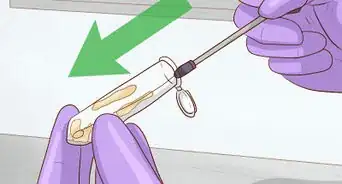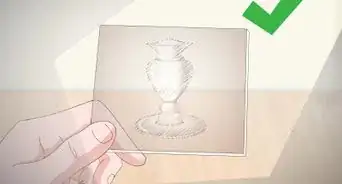This article was co-authored by Meredith Juncker, PhD. Meredith Juncker is a PhD candidate in Biochemistry and Molecular Biology at Louisiana State University Health Sciences Center. Her studies are focused on proteins and neurodegenerative diseases.
There are 8 references cited in this article, which can be found at the bottom of the page.
This article has been viewed 25,415 times.
The Science Olympiad (SO) can best be described as a STEM academic track meet. Participating in the Science Olympiad is a huge time commitment. Be prepared to sacrifice other activities in order for you to have ample time to gather your resources, as well as learn and practice your materials so that you will be ready for competition day.
Steps
Choosing Events
-
1Choose events based on your strengths. One of the best ways to excel at the SO is to choose events based on your strengths. To do this ask yourself, “Do I enjoy earth science, biology, chemistry, physics, or engineering most?” or “Which science classes do I excel in?” By answering these questions, you can figure out which events you will enjoy the most, and thus, which events you will excel in.[1]
- If you like biology, you may consider the events Anatomy & Physiology, Green Generation, Water Quality, Heredity, Disease Detectives, Ornithology, Bio Process Lab, Awesome Aquifer, and many more. Remember, not all of these events may be available due to your school or the year.
- If you prefer physics events, you may consider the events Circuits Lab, Machines, Density Lab, and many more.
- If you like engineering and hands-on events, consider Wright Stuff, Mousetrap Vehicle, Helicopters, Ping-Pong Parachute, Electric Wright Stuff, Bio Process Lab, Storm the Castle, and many more.
- Earth science events include Meteorology, Dynamic Planet, Reach for the Stars, Fossils, Food Science, and many more.
-
2Join a study event if you have strong reading and writing skills. Study events are reading and writing intensive. This type of event often involves completing a written component. Either a test will be administered during this event, or it will run in stations. If it is run in stations, there are typically 10 to 20 stations. For each station there will be a corresponding section in your test with questions. The stations also have time limits; typically 5 minutes per station. On the other hand, if a test is administered, it will be like a normal test with questions and answers. Sometimes models, like anatomy models, will be present as well.[2]
- Prepare for study events by making a binder. Your binder should include your notes, charts, and diagrams. Use flashcards to help you remember names of muscles and bones. You can also use school textbooks to help you study. Not all events allow you to use a binder. Events such as ornithology uses one, but events such as anatomy & physiology has requirements for it. However, when preparing, you can use as much note sheets you want, but be sure not to during the competition!
- Put extra time into studying charts and diagrams since a lot of the questions on the tests pertain to charts, like the skeletal or muscular system. Study their corresponding names and numbers.
- Buy test packets and field guides. Purchase test packets depending on which division you are in. Test packets include tailored exercises for each event and division. For example, if you are in Division C and will be participating in a physical life sciences event, buy the Division C test packet for the life sciences.[3]
Advertisement -
3Sign up for a building event if you enjoy making models. Building events are more hands-on and require participants to build something. Participants either have to build something before the competition and bring it the day of, or build something at the competition from start to finish.
- Prepare for a building event by reading the rules and specifications for your model. Memorize the rules and hold study sessions where you quiz yourself and your teammates on the rules.
- Practice building beforehand. Don't expect to build something wonderful if you haven't tried to build anything before.
- Plan out your design before building it. Once your design is built, hold multiple testing sessions in order to see how your model functions. Make sure both you and your partner are present during testing sessions. Also, record any adjustments you make in a log so you can gauge what effect the adjustment had on your model.[4]
- Use materials that are sturdy and straight, like metal and wood, so they will not bend during competition time. You also want your model to be flexible and not rigid. This means refraining from using too much glue; use screws and fasteners (if weight restrictions do not apply) to hold your model together.[5]
-
4Choose a lab event if you enjoy chemistry. If you sign up for a lab event, get to know the chemical components and lab equipment you’ll be using the day of the event. Lab events often require the team to work on multiple things at once. Split up your team based on proficiency.[6]
- For instance, 1 student can measure powders or solutions and perform the chemical reactions, while another student can focus on answering the corresponding questions or doing the lab write-up.
Learning the Material
-
1Learn the rules. Learning the rules for each event and for each level, i.e., invitational, regional, state, or national, is crucial to successfully completing an event. Ensure that you have an up-to-date handbook by checking for the year at the bottom of the page next to the page number. [7]
- The handbook will advise you on what materials to bring, like goggles or a lab coat, as well as what materials you cannot bring. Many events don't allow a graphing calculator.
-
2Set up regular meetings with teammates. Once you have acquired all your studying materials, set up regular meetings with your team and teammates. These meetings should be weekly meetings. Teamwork skills are very important. Therefore, practice working as a team, and learn to trust your partner’s skills.
- Learn to trust your partner’s skills by practicing with them regularly. By practicing with each other, you will be able to assess each of your strengths and weaknesses.
- Adjust your partnership relative to you and your partner’s strengths and weaknesses. For example, if one of you excels at identifying muscle groups, while the other excels at writing, adjust your partnership accordingly.
- If your partner doesn't study, tell a coach. You don't want to be dragging them around; it isn't fair for you.
- Practice with sample questions from your test packets, field guides, and training guides.
-
3Time yourself. Remember that events are timed. In order to be successful at the competition, practice under timed conditions. Have your teammate time you as you practice completing a task, and vice versa. Come up with sample questions and stations in order to practice completing these tasks on time. [8]
Organizing Your Materials
-
1Create a binder. Create a binder that contains your resources, like your notes. Have a copy of the rules, as well as lists that are needed for an event, for example, a list of birds or fossils. If you are attending multiple events, section off the materials in your binder so you can access them easily and avoid mixing up the materials; also label the section tabs.[9]
- Try to get as much information as possible on a page by reducing the size of images. Or, type up your notes in small font (but not so small that you cannot read it), and then write extra notes in the margins. Include things in your notes that you have trouble memorizing.
- Color code important information so you can access it quickly. Keep the colors of your codes consistent so that you will be able to associate a color with a particular piece of information. For example, color code muscles pink, the respiratory system blue, and the endocrine system red.[10]
-
2Make extra copies of your notes. Make extra copies of your notes in case you lose your binder or your original notes. Protect your notes by placing them in plastic sheet protectors.[11]
-
3Have a toolbox. For students who will need to bring models to the event, bring along a toolbox in case your model comes apart or loses a part in transit from your home to the event.[12]
- You might want to bring items like glue, tape, toothpicks, clay, paint, paper, and markers.
Readying Yourself for Competition Day
-
1Know the layout of the competition site. You will be provided with a map of the campus that will be hosting the event. Take some time to review the map and locate which buildings your event will be in. If you have time and live near the campus, visit the school or college that will be hosting the event. This will enable you to become familiar with the buildings and locate convenient parking sites.[13]
-
2Plan what you will do ahead of time. Plan out how you will get to the event, when and what you will eat for lunch, and what time you plan to arrive and leave the event. Try to obtain the phone numbers of some of your teammates in case you get lost at the event or cannot find the correct building your event will be in.[14]
-
3Get a good night’s sleep. Ensure that you have enough energy for competition day by getting a good night’s sleep. For a good night’s sleep, it is recommended that you sleep at least 7 hours. Also, try to relax before competition day by doing something fun instead of studying or practicing.[15]
-
4Eat a healthy breakfast. Eating is also crucial if you want to have a successful day. Try to have a healthy breakfast by eating fruits, oatmeal, eggs, and grains for breakfast. Try to avoid sugary foods like cereal or pop tarts. Sugary foods will most likely cause you to have a sugar rush, which might make you crash and become very tired.[16]
-
5Show up early. Show up early to the competition and to your event. Show up three to five minutes early for your event. This will ensure that you have enough time to set up your materials, gather your thoughts, and take a couple relaxing breaths to ready yourself for the event.
Community Q&A
-
QuestionWhat information should I have specifically for my event, Herpetology? What information will I use on the test? The practice tests online are not helping and are nothing like the real test.
 Community AnswerLook at the rules for your competition, and they will tell you what you need. You will likely need taxonomy, breeding time, range and more.
Community AnswerLook at the rules for your competition, and they will tell you what you need. You will likely need taxonomy, breeding time, range and more. -
QuestionHow can I get sample problems and answers for this?
 Community AnswerYou may not be able to get event-specific samples, but you canstudy hard and look up some hard or tricky science questions online.
Community AnswerYou may not be able to get event-specific samples, but you canstudy hard and look up some hard or tricky science questions online. -
QuestionWhat if you don't win a medal or trophy but you feel like you tried hard and did your best?
 Gluk PerwwiCommunity AnswerThis may be true, but you could have made a small mistake that separated you from the medal. Usually everyone writes Olympiads to their maximum. Try to find out what your mistake is and practice on fixing it, but do not forget about other topics. Don't be discouraged if you don't get a medal next time. Half of the Olympiad consists of material that is not taught in schools.
Gluk PerwwiCommunity AnswerThis may be true, but you could have made a small mistake that separated you from the medal. Usually everyone writes Olympiads to their maximum. Try to find out what your mistake is and practice on fixing it, but do not forget about other topics. Don't be discouraged if you don't get a medal next time. Half of the Olympiad consists of material that is not taught in schools.
References
- ↑ http://blog.prepscholar.com/what-is-science-olympiad
- ↑ http://scioly.org/wiki/index.php/Anatomy_and_Physiology
- ↑ https://www.soinc.org/preparation_tips
- ↑ http://scioly.org/wiki/index.php/Scrambler
- ↑ http://scioly.org/wiki/index.php/Scrambler
- ↑ https://blog.collegevine.com/the-ultimate-guide-to-science-olympiad/
- ↑ https://www.soinc.org/preparation_tips
- ↑ https://www.soinc.org/preparation_tips
- ↑ https://www.soinc.org/preparation_tips
- ↑ http://scioly.org/wiki/index.php/Anatomy_and_Physiology
- ↑ http://scioly.org/wiki/index.php/Preparing_for_Competition
- ↑ http://scioly.org/wiki/index.php/Preparing_for_Competition
- ↑ http://scioly.org/wiki/index.php/Preparing_for_Competition
- ↑ http://scioly.org/wiki/index.php/Preparing_for_Competition
- ↑ http://scioly.org/wiki/index.php/Preparing_for_Competition
- ↑ http://scioly.org/wiki/index.php/Preparing_for_Competition


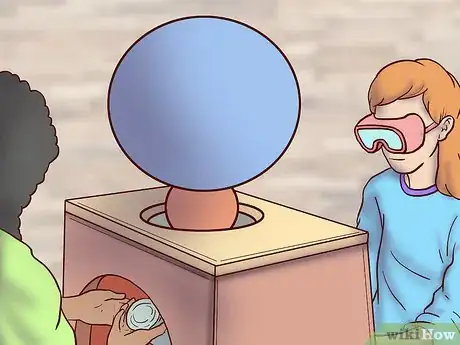


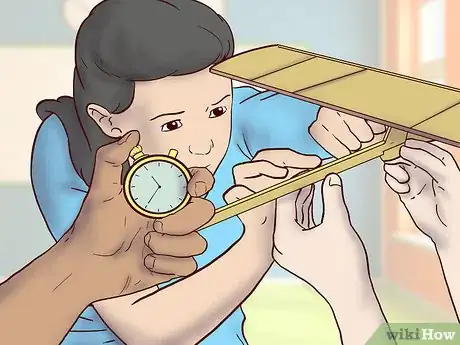
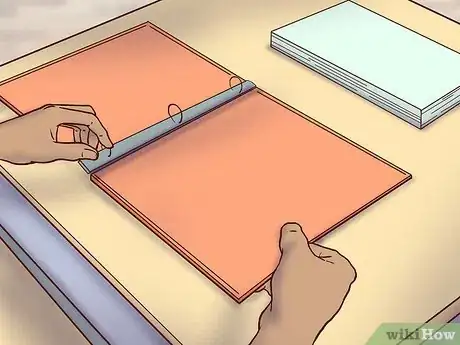
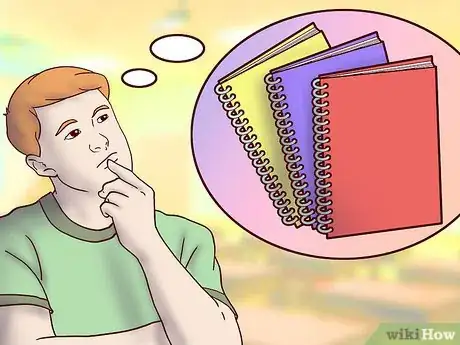
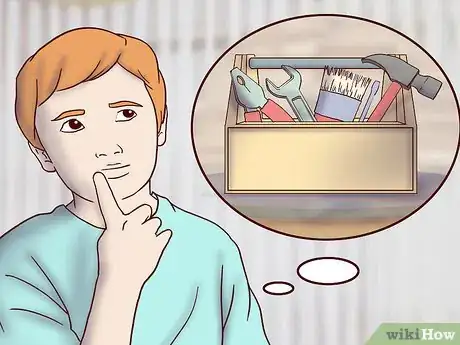





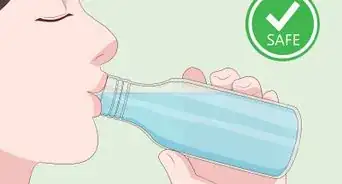


-Electric-Shock-Step-9.webp)

